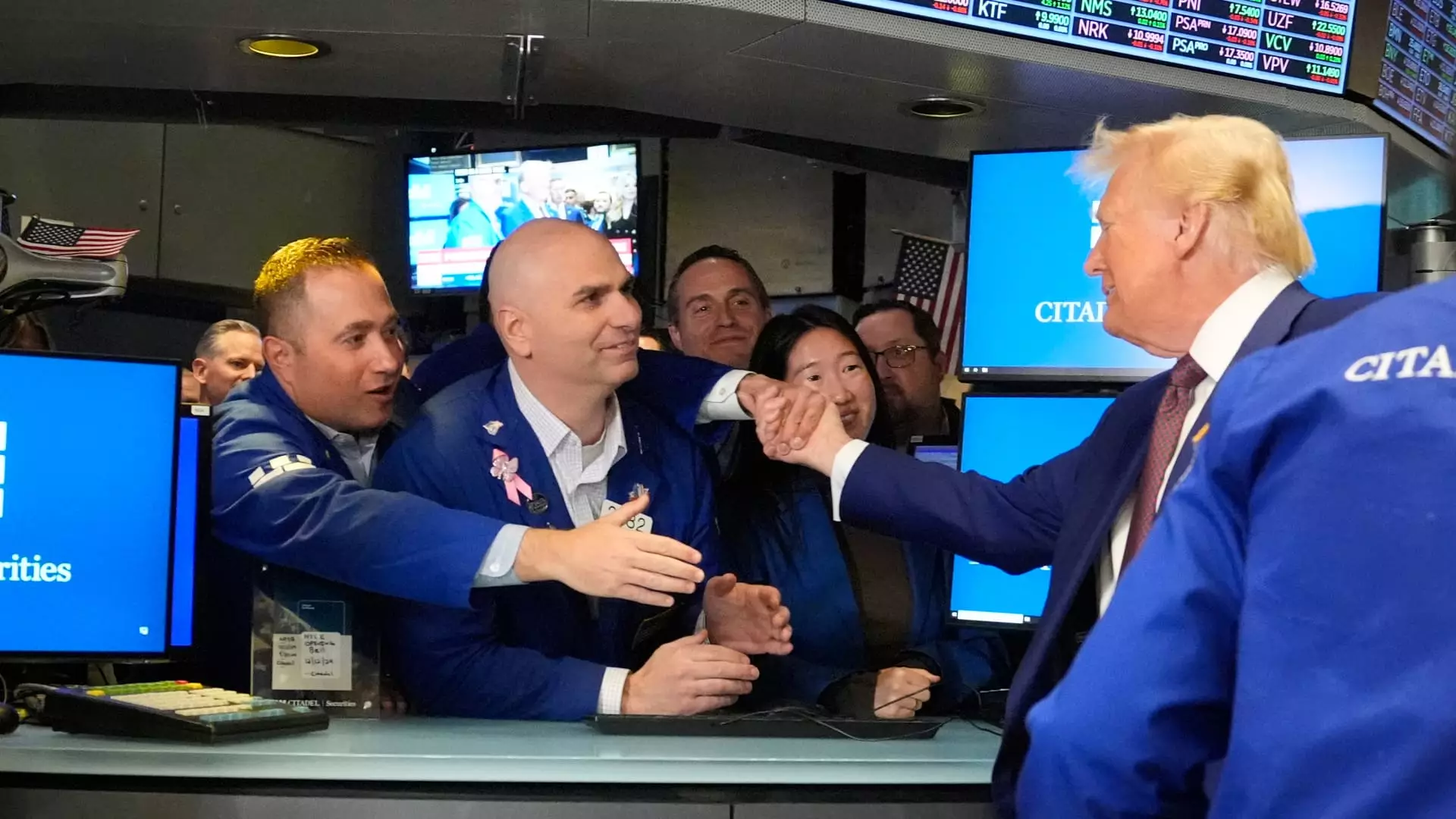Upon inaugurating the trading day at the New York Stock Exchange, President-elect Donald Trump made headlines not just for the ceremony itself, but for his cautious approach towards advising investors. Instead of offering a direct encouragement to buy stocks, he expressed hesitance over potential market volatility, stating, “I don’t want to get into a situation where they do and we have a dip or something because that can always happen.” This statement reflects a significant aspect of Trump’s economic philosophy: while optimism about the market is essential, a prudent and thoughtful approach is equally important.
During his first term, Trump utilized the stock market as a benchmark for economic success, claiming credit for its remarkable 68% rise in the S&P 500 index. This upward trajectory was partly attributed to substantial corporate tax cuts enacted during his administration, aimed at catalyzing growth and investment within the nation. Furthermore, the Federal Reserve’s strategy of keeping interest rates low played a critical role by making borrowing more appealing for companies, thereby spurring investment and, consequently, pushing stock prices higher.
Despite the evident success in achieving record market levels, it is worth scrutinizing whether these gains genuinely reflect a sustainable economic foundation or are merely indicative of a temporary stimulus effect driven by fiscal policies. The dual influence of tax cuts and low interest rates raises questions on long-term economic stability when faced with inflationary pressures or potential shifts in policy.
At his New York appearance, Trump proposed further tax reductions, suggesting a decrease in corporate tax rates from 21% to 15% specifically for companies manufacturing domestically. This move echoes his administration’s previous strategies aimed at incentivizing production within U.S. borders, yet it invites speculation regarding its long-term implications. The prospect of additional tax cuts could certainly bolster short-term investment enthusiasm, but the sustainability of such policies must be critically assessed within the broader context of federal revenue and potential deficit increases.
Moreover, Trump’s contention that “we’re gonna do things that haven’t really been done before” reflects an ambitious agenda, but it raises flags about the feasibility and practicality of delivering these promises in an increasingly complex economic landscape.
The presence of economic leaders from firms like Goldman Sachs and Pershing Square during Trump’s bell-ringing ceremony indicates a general bullish sentiment among finance professionals. Figures like Bill Ackman emphasized the correlation between corporate success, stock market performance, and broader economic indicators such as wages and job growth. Their perspective reinforces the notion that a thriving business environment can generate a win-win scenario for both investors and the public.
However, this optimistic outlook must be tempered with a realistic understanding of market cycles. It is critical for both investors and policymakers to remain vigilant against the inherent risks that accompany rapid economic changes.
While Trump refrained from providing explicit investment advice during his speech, his persistent bullish sentiment about the nation’s potential resonates with many stakeholders within the economy. He envisions a robust future for America, characterized by unprecedented growth and opportunity. Yet, balancing this optimism with caution will be paramount in navigating the complexities of economic governance.
Trump’s approach exemplifies the fine line between advocating for growth and acknowledging the inevitable fluctuations in financial markets. His challenges ahead encompass fostering a flourishing business environment while ensuring that economic policies are grounded in sustainability, thereby cultivating trust among investors and the public alike.

